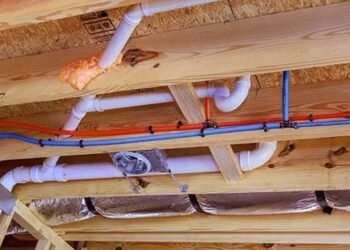Choosing to install a new heating system is a significant decision for any homeowner. It affects your comfort, energy bills, and the overall efficiency of your home.
With various options available, understanding the crucial factors to consider can help you make an informed choice. This article delves into everything you need to think about before installing a new heating system, ensuring you pick the perfect solution for your needs.
Type of Heating System
Before selecting a new heating system, it’s essential to understand the different types available. Furnaces, heat pumps, boilers, and radiant heating each offer unique benefits.
Furnaces are popular due to their efficiency and availability in gas, electric, or oil options. Heat pumps are highly efficient and versatile, providing both heating and cooling.
Boilers, whether gas, oil, or electric, are known for their excellent heat distribution and one of the best boilers is combi boilers. Radiant heating systems, installed under floors or in walls and ceilings, offer even and consistent heat, creating a cosy atmosphere.
Fuel Source
The choice of fuel source significantly impacts the operating costs and efficiency of your heating system. Natural gas is a common and cost-effective option, while electricity is universally available but can be more expensive.
Oil, though less common, remains an option in certain areas, and propane, though versatile, can be pricey. Evaluate the availability and cost of these fuels in your area to make an informed decision.
Efficiency Ratings
Efficiency is a crucial factor in selecting a heating system. For furnaces and boilers, look for the Annual Fuel Utilisation Efficiency (AFUE) rating; higher AFUE ratings indicate better efficiency.
Heat pumps use the Heating Seasonal Performance Factor (HSPF), with higher numbers signifying greater efficiency. Always consider systems with ENERGY STAR certification to ensure optimal performance and energy savings.
Size and Capacity
Choosing the right size and capacity for your heating system is vital for efficiency and comfort. The heating capacity is measured in British Thermal Units (BTUs).
Ensuring your system is appropriately sized for your home’s square footage and insulation levels is crucial. A professional load calculation can determine the correct size, preventing issues related to undersized or oversized systems.
Installation Costs
Installation costs encompass more than just the price of the unit. You need to consider the labour involved, any required permits, and inspections to comply with local codes.
Additionally, if you’re replacing a different type of system, ductwork modifications might be necessary, adding to the overall cost. It’s essential to budget for these expenses to avoid unexpected financial surprises.
Local Building Codes and Regulations
Compliance with local building codes and regulations is essential when installing a new heating system. Ensure your chosen system meets these requirements to avoid potential legal issues.
Additionally, check for any available rebates or incentives that can offset the cost of your new system, making it a more economical choice.
Conclusion
Installing a new heating system is a major decision that impacts your home’s comfort and energy efficiency. By considering these factors, you can make an informed choice.
Consulting with professionals further ensures that your investment provides long-term comfort and savings. With careful planning, you can select the best heating system for your home, creating a warm and inviting environment for years to come.












